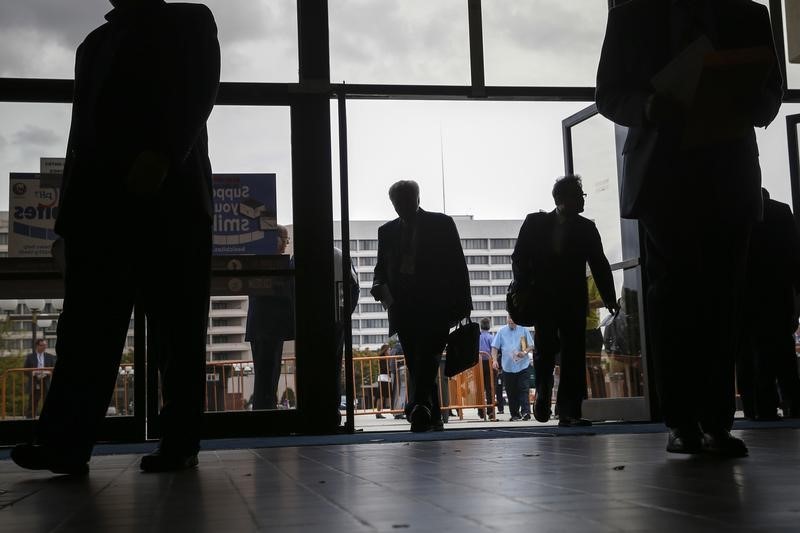By Huw Jones
LONDON (Reuters) - Central banks may need to become "market makers of last resort" if there is not enough liquidity during volatile sell-offs, a senior International Monetary Fund official said on Thursday.
Regulators worry that when interest rates begin rising from their prolonged low levels there will be a stampede for the exits by bond investors and that markets won't have the liquidity or capacity to deal with it smoothly.
The prospect that the Federal Reserve may start raising rates later this year has already prompted "taper tantrums" or severe volatility in global financial markets.
Jose Vinals, director of the IMF's capital markets department, said market liquidity has shrunk as capital requirements on banks have increased but that there was no simple relationship between the two.
Central banks buying bonds to conduct unprecedented stimulus programmes over the last three years -- most recently the European Central Bank -- have also been blamed for sucking volume out of the market, making it less liquid.
Vinals said it was unclear whether markets were simply more volatile or whether there were systemic consequences, but it would take time to find a solution,
"The time it takes for the global regulatory community and central banking world to find a solution this time may be longer than the time where one episode of big illiquidity happens," Vinals told a meeting of the International Organization of Securities Commission (IOSCO) in London.
"Then the question is what to do. In my view the only thing that can be done at that time is that central banks should become again market makers of last resort."
Ashley Alder, chief executive officer of Hong Kong's Securities and Futures Commission, said central banks acting as market markers of last resort was the "last thing" he wanted to see.
"If you react to that by piling more intervention on intervention, you encourage more untoward risk taking and you end up with even greater amount of mispriced risk," Alder told the conference.
"You end up with a never-ending cycle that is harder and harder to get out of," Alder added.
IOSCO agreed this week to review market liquidity given what has happened in bond markets.
Some regulators are leery of intervening, noting that markets have always gone up and down and that incorrect intervention could create problems elsewhere.
"We simply don't have the right amount of data to understand what we are dealing with in today's markets," Alder said.
